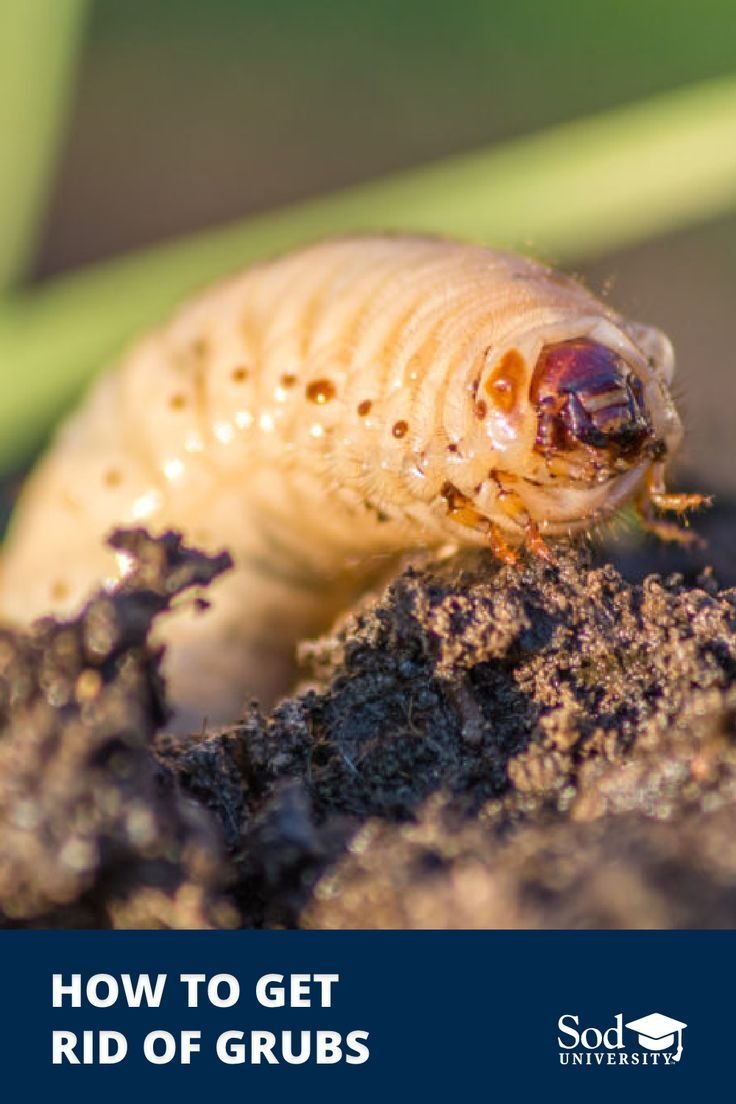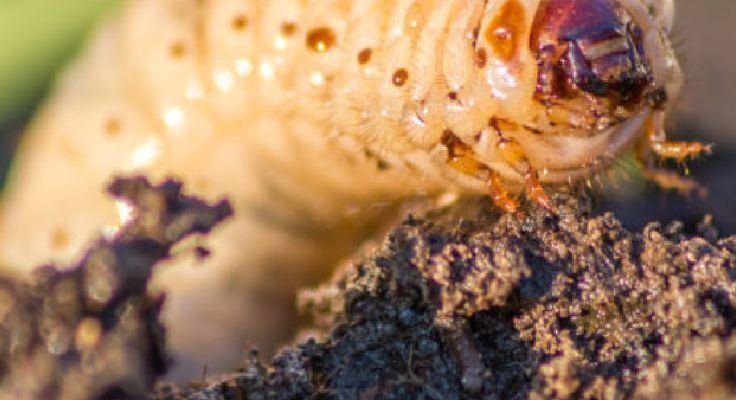
So, what exactly are grub worms and why should you worry about them? These are the larvae of various beetles that love to munch on roots and can wreak havoc on your plants. If you’ve noticed brown patches in your yard or wilting plants, it might be time to consider a natural solution. Instead of reaching for harsh chemicals, let’s explore how chickens can help tackle the grub worm problem while keeping your garden healthy and harmonious.
What Are Grub Worms?
Grub worms, commonly referred to as grubs, are the larvae that emerge from eggs laid by adult beetles. They live underground, feeding on plant roots and organic matter. When the population is high, they can cause serious damage to your lawn and garden. You might be wondering, “How can I tell if I have grubs?” Well, some telltale signs include patchy grass, a spongy feel when you walk over affected areas, and even birds or animals digging in your yard looking for a meal.
Grubs typically thrive in warm, moist conditions. They’re especially abundant in summer and early fall. If you’ve noticed your garden isn’t looking as vibrant as it used to, it might be time for a closer inspection. Identify the areas that seem off and dig a little—literally! If you find white, C-shaped larvae, you’ve got grubs on your hands.
How Chickens Help with Grub Control
Here’s the thing: chickens are natural foragers. They love scratching the ground, which helps them uncover all sorts of tasty morsels, including grubs. By introducing chickens into your yard, you can harness their instinctive behavior to control grub populations effectively. They don’t just stop at grubs either; these feathered friends will munch on other insects and pests, helping keep your garden balanced.
You might be wondering if there’s a downside to using chickens for pest control. Honestly, there can be. Chickens will dig up the soil, which can disturb your garden beds. However, if you manage their access to certain areas or use them in rotation, you can reap the benefits without too much disruption. Plus, their droppings can even serve as a rich fertilizer, contributing to healthier soil!
Choosing the Right Breed of Chicken
When it comes to selecting chickens for grub control, not all breeds are created equal. Some are more enthusiastic foragers than others. Breeds like *Rhode Island Reds*, *Red Stars*, and *Leghorns* are known to be great at scratching around in the dirt and enjoy hunting bugs. Before you make a decision, consider your space and the number of chickens you’d like to keep.
Here’s a quick guide on chicken breeds for pest control:
- Rhode Island Reds: Hardy and resilient, they adapt well to various conditions.
- Red Stars: Friendly and active, these chickens are great foragers.
- Leghorns: Known for their high egg production, they’re also keen on hunting insects.
Take a moment to think about what you want from your chickens. Do you want them to lay eggs, or are you focusing mainly on pest control? Understanding your goals will help you choose the right breed for your needs.
Integrating Chickens into Your Garden
You can’t just let your chickens roam free without a plan. It’s crucial to integrate them into your garden carefully. If you have delicate plants, you may want to use a chicken tractor—a portable coop that allows chickens to forage while protecting your plants. This way, they can still get their grub on without destroying your hard work.
Another option is to set up a rotation system. Move the chickens from one section of the garden to another every few days. This method gives them access to grubs while allowing the soil to recover. Plus, it keeps your chickens happy and engaged as they explore new ground.
Just remember, protecting your garden is a priority, and it’s essential to monitor how your chickens interact with your plants.
Feeding Your Chickens for Optimal Health
While chickens are fantastic foragers, they still need a balanced diet to stay healthy. Feed them high-quality chicken feed that’s rich in protein, vitamins, and minerals. A well-fed chicken is more likely to be energetic and willing to hunt for grubs.
Adding kitchen scraps is a great way to supplement their diet. Chickens love fruits, vegetables, and even grains—just avoid feeding them anything toxic, like onions or chocolate. Think of their diet as an extension of your pest control strategy; the healthier they are, the more effective they’ll be at munching those grubs.
Incorporating treats will also keep your chickens happy and engaged. A happy chicken is a productive chicken!
Environmental Benefits of Using Chickens
Using chickens for grub control is more than just a clever pest management strategy. It’s also an eco-friendly way to support your garden. By letting chickens do their thing, you minimize the need for chemical pesticides that can harm beneficial insects and pollinators.
Chickens contribute to the health of the soil by providing organic fertilizer through their droppings. This natural fertilizer adds nutrients back into the earth, promoting healthy plant growth. Additionally, as they scratch the surface, they aerate the soil, which can help with water drainage and root development.
It’s a beautiful cycle: healthier chickens lead to healthier soil, which results in a thriving garden!
Potential Challenges and Solutions
Like any solution, using chickens for grub control has its challenges. For example, you might be concerned about them damaging your plants or wandering off. One key is proper fencing. Ensuring your chickens have a secure area will keep them safe from predators while preventing them from wandering into places where they shouldn’t be.
If you find that they are getting a little too enthusiastic with digging, consider adding a layer of mulch to your garden beds. This not only helps to keep the soil moist but also reduces the chances of chickens scratching too deeply into the ground. You might also alternate between free-ranging and contained foraging to strike a balance.
Here’s where being proactive comes in. Pay attention to how they interact with your garden and be ready to make adjustments as needed.
Using chickens to control grub worm populations is a smart, natural approach to pest management. Not only do these feathered friends help keep your garden healthy, but they also add life and character to your backyard. By understanding how to integrate chickens into your gardening routine, you can create a sustainable ecosystem that benefits both your plants and your poultry.
So, if you’re tired of battling grubs and want a solution that’s safe for your home and the environment, consider bringing chickens into the mix. With the right care and management, you’ll not only enjoy a bug-free garden but also the joys of raising your own chickens. Who knew pest control could be such a clucking good time?

